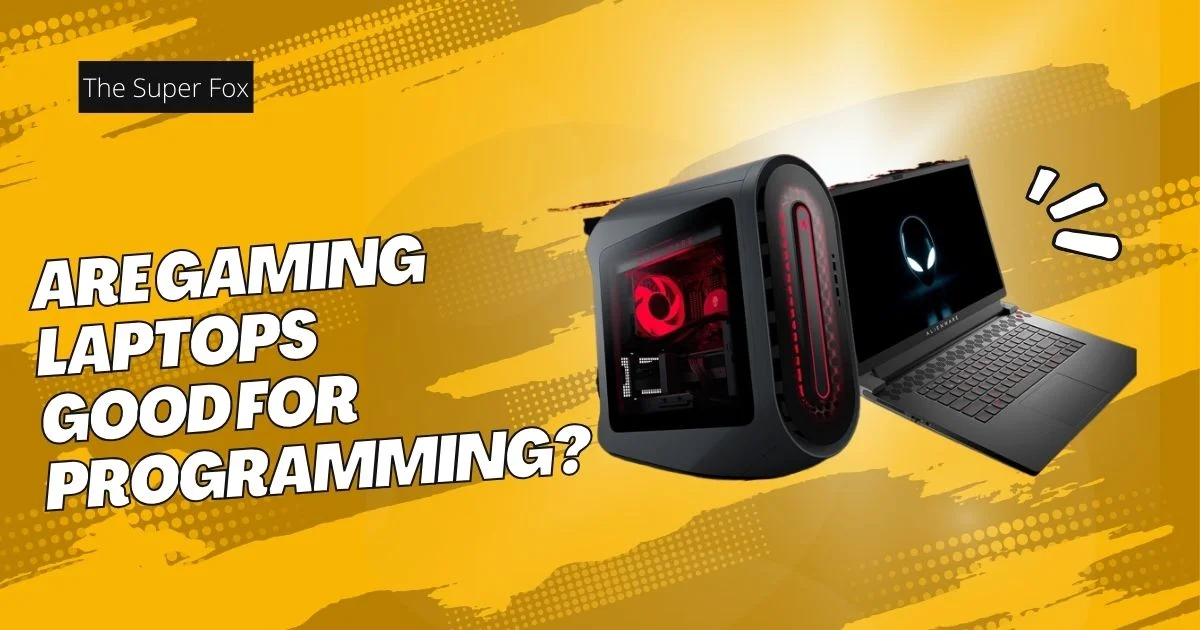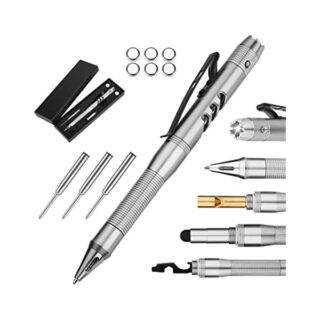
Gaming laptops are built to deliver the best performance possible when playing video games. They are often equipped with powerful processors, cutting-edge graphics cards, and significant amounts of RAM.
This makes them excellent for programmers who want a laptop capable of doing difficult tasks like compiling code, running virtual machines, and designing graphics-intensive applications.
So, let’s discuss the points of whether gaming laptops are good for programming or coding or not by keeping in view both the advantages and disadvantages of using gaming laptops for programming.
Table of Contents
ToggleAdvantages of Gaming Laptops for Programming
- Powerful performance: Gaming laptops often feature powerful processors and graphics cards that can easily handle hard programming tasks. This is especially true for programmers who work on large, complex projects or who need to employ graphics-intensive technologies like game development engines.
- Plenty of memory: Most gaming laptops have at least 16GB of RAM, which is more than enough for most programming work. This enables programmers to run many programs and virtual machines concurrently without encountering performance concerns.
- Excellent screens: Many gaming laptops feature excellent displays with quick refresh rates and high resolutions. This can improve coding comfort and efficiency, especially when working with big codebases.
- Portability: Gaming laptops are getting more portable, with many versions weighing less than 5 pounds. This makes them excellent for programmers who need to travel with their laptop.
Disadvantages of Gaming Laptops for Programming
There are a few drawbacks to making use of a gaming laptop for programming:
- Cost: Gaming laptops can be more expensive than non-gaming laptops with comparable specs. This is due to the fact that they often have more powerful components such as processors, graphics cards, and displays.
- Battery life: Gaming laptop batteries often last less time than non-gaming laptop batteries. This is due to the fact that they contain more powerful components that consume more electricity.
- Noise: When doing hard tasks such as generating code or operating virtual machines, gaming laptops can be quite noisy. If you are working in a calm area, this can be disturbing.
When to Consider a Gaming Laptop for Programming
A gaming laptop is an excellent choice for a programmer who need a laptop with powerful performance, plenty of memory, and a fantastic display. Gaming laptops are also great for programmers working on graphics-intensive applications like game creation or machine learning.
However, if you have a limited budget or require a laptop with a long battery life, a non-gaming laptop may be a better option.
How to Choose a Gaming Laptop for Programming
There are a few important factors to consider while selecting a gaming laptop for programming:
- Processor: A strong CPU is required for programming jobs. Look for a laptop with a quad-core processor or higher, such as an Intel Core i5 or i7 or an AMD Ryzen 5 or 7.
- Graphic card: A dedicated graphics card is not required for most programming tasks, although it can be useful when working on graphics-intensive programs. Look for a laptop with an NVIDIA GeForce GTX 1650 or higher graphics card or an AMD Radeon RX 5500M or higher graphics card.
- RAM: The minimum suggested amount of RAM for programming is 16GB. However, if you’re working on a huge, intricate project or using graphics-intensive software, you may want to consider a laptop with 32GB or more of RAM.
- Storage: For a quick and responsive programming experience, a solid-state drive (SSD) is required. Look for a laptop with at least 512GB of storage and an SSD.
- Display: A good monitor with a rapid refresh rate and a high resolution can make coding more comfortable and efficient. Look for a laptop with at least a 15-inch display and a resolution of 1920×1080 or greater.
Gaming laptops are an excellent choice for programmers who require a laptop with strong performance, plenty of RAM, and an excellent display. They are, nevertheless, more expensive than non-gaming laptops with comparable specifications and have lower battery life.
If you have a limited budget or require a laptop with a long battery life, a non-gaming laptop may be a better option. A gaming laptop, on the other hand, is a terrific alternative if you require a laptop that can handle hard programming chores like generating code, running virtual machines, and building graphics-intensive applications.
Related Posts
Troubleshooting – A D3d11-Compatible GPU Is Required To Run The Engine
When trying to launch a game or program that needs...
Read More5 Gaming Laptops That Don’t Look Like Gaming Laptops
RGB lighting, aggressive angles, and...
Read More










Leave a Reply